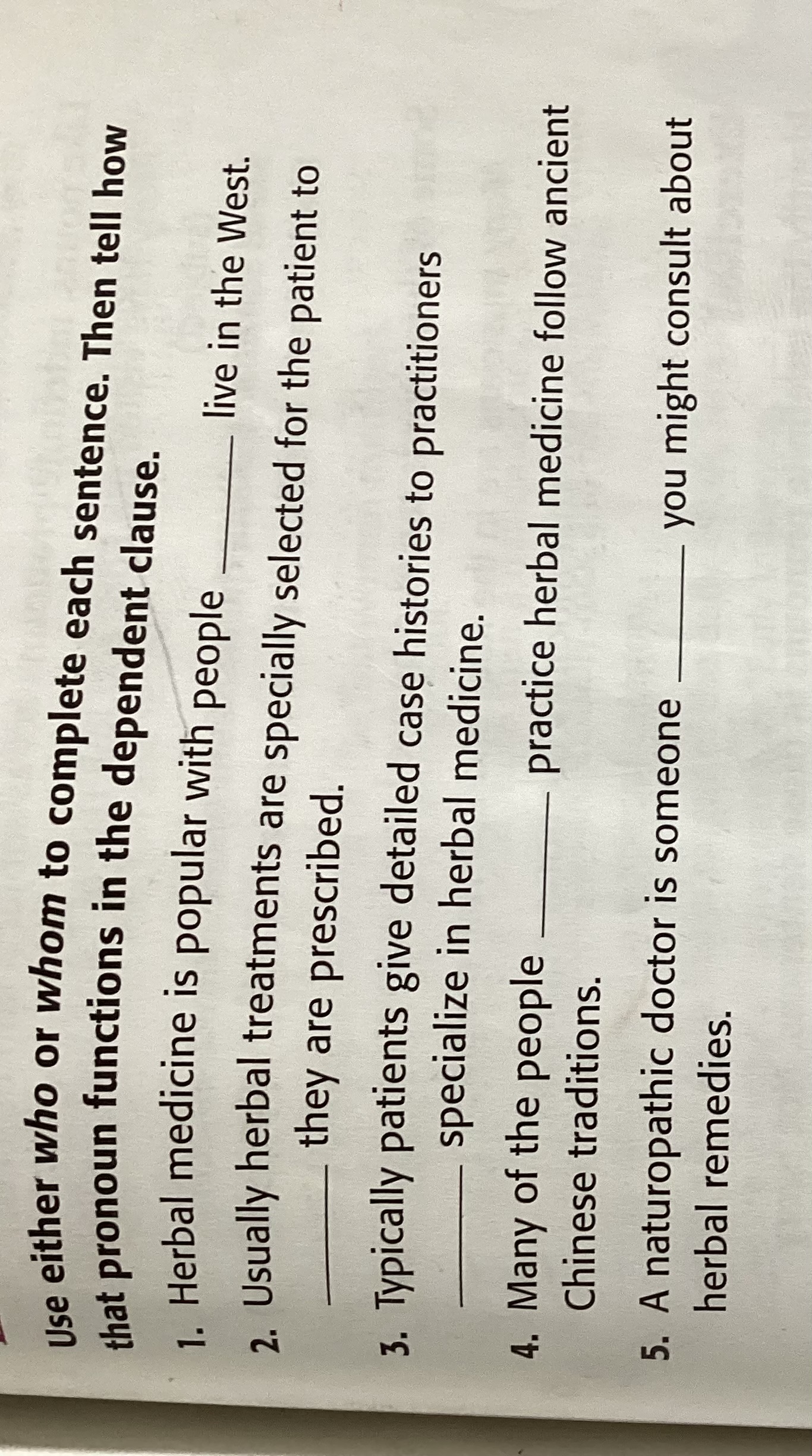Use either who or whom to complete each sentence. Then tell how that pronoun functions in the dependent clause. 1. Herbal medicine is popular with people _______ live in the West.... Use either who or whom to complete each sentence. Then tell how that pronoun functions in the dependent clause. 1. Herbal medicine is popular with people _______ live in the West. 2. Usually herbal treatments are specially selected for the patient to _______ they are prescribed. 3. Typically patients give detailed case histories to practitioners _______ specialize in herbal medicine. 4. Many of the people _______ practice herbal medicine follow ancient Chinese traditions. 5. A naturopathic doctor is someone _______ you might consult about herbal remedies.

Understand the Problem
The question requires you to fill in the blanks in each sentence with either "who" or "whom," and then explain the grammatical function of the pronoun within the dependent clause (i.e., how it is used in the clause). It is testing your understanding of English grammar, specifically the correct usage of relative pronouns.
Answer
1. who, subject; 2. whom, object of preposition; 3. who, subject; 4. who, subject; 5. whom, object
- who, subject
- whom, object of the preposition
- who, subject
- who, subject
- whom, object
Answer for screen readers
- who, subject
- whom, object of the preposition
- who, subject
- who, subject
- whom, object
More Information
The pronoun 'who' is used to refer to the subject of a sentence, while 'whom' is used to refer to the object of a verb or preposition.
Tips
A common mistake is using 'who' when 'whom' is required, especially in formal writing. To avoid this, try replacing 'who/whom' with 'he/him' or 'she/her'. If 'him' or 'her' fits, then 'whom' is correct.
Sources
AI-generated content may contain errors. Please verify critical information